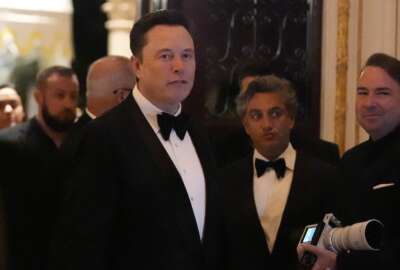Don’t forget the mostly unknown career feds behind the prisoner exchange
The U.S. seems mighty imperfect these days, but would you trade it for the government in Russia, or Venezuela or China?
The Washington Monument is really, really tall. One hundred forty years since its completion, it remains an extraordinary sight, not just for its engineering and construction, but also for what it stands — the strength of our institutions.
Playing tour guide in D.C. for out-of-town visitors — something everyone should do in their respective cities — I realized it had been years since I actually walked the mall. My mind connected with the situation in Venezuela, once a prosperous and relatively free country. Now its dictator, Maduro, has pretty much corrupted the country’s governmental institutions to buy his continuance in power. A sort of South American Putinette.
Institutions are imperfect, sometimes badly, because they’re staffed by fallible people. But at least in the U.S. we’ve got separation of powers and loud interests that keep basic liberty in place, if often messily. And sometimes the great nations have to hold their national noses in deals with lesser nations. Witness the exchange yesterday of Paul Whelan, Evan Gershkovich and other righteous people came at the cost of the West releasing a convicted murderer-for-hire and malicious cyber hackers, among others. But credit the federal employees who ground out this deal. The politicos bask in the credit, and do get involved of course. But career people tend to do the tedious day-after-day work.
Last year I interviewed two Sammies award winners from the State Department — both under the age of 35 — who had negotiated a complex prisoner exchange involving Venezuela, as a matter of fact.
One of the State Department negotiators, Jennifer Harkins, commented of her job, “My main role here is to kind of formulate the strategy in working with and negotiating with the foreign government in order to secure the release. I also am the main point of contact for the families here in the U.S., continuously giving them updates. We also do a lot of congressional engagement, congressional briefings to make sure they’re up to speed. ”
Consider that pressure cooker: dealing with families, Congress and sometimes-nasty foreign governments all while Americans are stuck in foreign prisons.
Sometimes feds contend with their own agency leadership and argue publicly over operation and funding of agencies. And they don’t go to prison for it.
Case in point: In a new interview, John Zumkehr, the correctional officer and AFGE local union president for the Federal Correctional Facility at Thomson, Illinois. Thomson was a dangerous and poorly run maximum security institution until the Bureau of Prisons. Zumkehr’s been vocal about persistent staffing shortages and the withdrawal of incentive pay there, which he brought up directly with BOP Director Collette Peters at a hearing.
The BOP does its basic function of keeping federal inmates incarcerated. But it has issues with staffing, morale, safety within prisons, and the decrepit conditions of many of its facilities. But at least we can debate it all publicly and without repercussions.
The other day was National Whistleblower Day. Whistleblowers often face retaliation and it can produce a terrible situation. But we don’t shoot or execute them. The National Whistleblower Center likes to point out that legal protection of whistleblowers, people who go public with what they perceive as organizational wrongdoing, dates back to 1778.
A few footnotes on playing tourist locally. Sunday in the summer there’s no traffic on Capitol Hill, so you can loiter in your car in front of the Supreme Court building, across from the back of the Capitol. Always great to hear the reactions of people’s first viewing of sights we take for granted. Like the back of the White House from Constitution Avenue, and pointing out the Truman balcony.
I’d forgotten the power of the Vietnam Memorial, its simplicity belying its evocative power. It notes a difficult chapter in U.S. history. As you descend into the ever-taller stones engraved with ever-greater numbers of names of the killed, the enormity becomes nearly overwhelming.
A final thought. As a nation, when considering politicians, what we should worry about is not democracy exactly, but rather, liberty. The extremes of both parties cause worry on that front. Lots of unfree nations have elections and call themselves democratic. But the chance to vote for your dictator isn’t what the framers, including the man with the 555-foot monument, had in mind.
Copyright © 2024 Federal News Network. All rights reserved. This website is not intended for users located within the European Economic Area.
Tom Temin is host of the Federal Drive and has been providing insight on federal technology and management issues for more than 30 years.
Follow @tteminWFED







